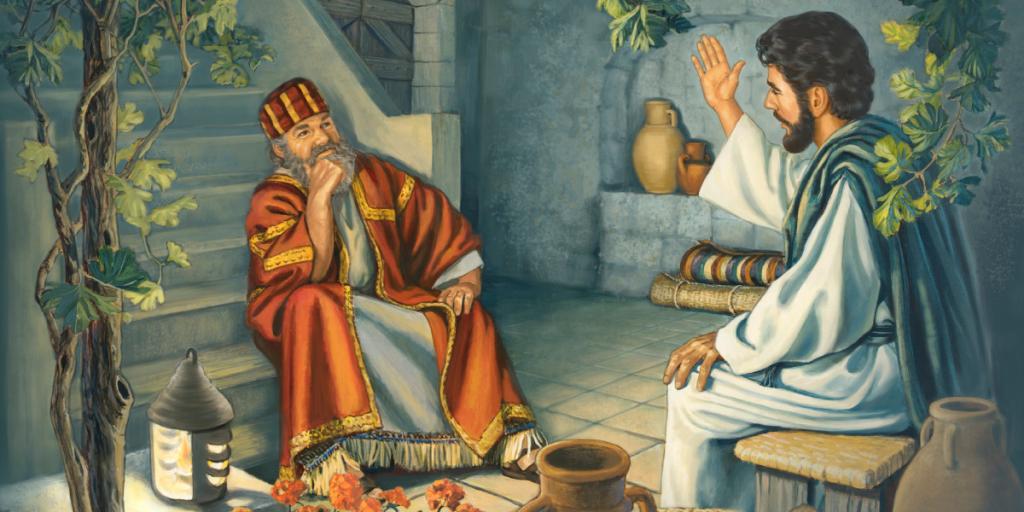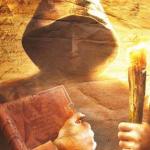
There are so many people who believe that doubt has no place in the Church. From Church leadership to the layperson. The reason that is often given has to do with the perceived incongruity between faith and doubt. However, what most of these people fail to understand is that faith is created in the infernal cistern of doubt. Even when most evangelicals present the Gospel it is often presented in such a way that one must doubt their “worldly” perspective to accept the religious one that Jesus offers. Faith is not antithetical to doubt, it is defined and refined by it.
Jesus the Doubter
Jesus follows the prophets in a long-established tradition of doubting Judaism. In fact, the entire ministry of Jesus was built upon the notion that Judaism was being practiced incorrectly. This is one reason Jesus is called a prophet. Much like modern evangelicalism, Judaism had established a strong intellectual bond to their religion. Oftentimes, the practice of Judaism was limited to the religious practices within the temple and not extended to the Jewish people. This inability to separate intellect from practice is the hallmark of the evangelical problem. Jesus is often seen as one calling out the religious leaders about this incongruency.
“Then Jesus said to the crowds and to his disciples: “The teachers of the law and the Pharisees sit in Moses’ seat. So you must be careful to do everything they tell you. But do not do what they do, for they do not practice what they preach. They tie up heavy, cumbersome loads and put them on other people’s shoulders, but they themselves are not willing to lift a finger to move them.” (Matthew 23 1:1-4)
“Woe to you, teachers of the law and Pharisees, you hypocrites! You give a tenth of your spices—mint, dill, and cumin. But you have neglected the more important matters of the law—justice, mercy, and faithfulness. You should have practiced the latter, without neglecting the former. You blind guides! You strain out a gnat but swallow a camel.” (Matthew 23:23-24) Emphasis mine.
I would like to suggest that questioning our faith is something that Jesus was a proponent of. If we are not in a state of constant skepticism, then how will we ever know when we have gone astray? If we are not constantly questioning our leaders how will we know when we have crossed that threshold? Karl Barth was famous for saying “Ecclesia semper reformanda est” the church should always be reformed. What Barth meant by this was that we should be constantly reforming. Reformation is always brought about by honest bouts with doubt.
Last year I wrote a blog article on “Doubt as a Spiritual Discipline” In that article, I suggested that we should look at doubt as we do the other spiritual disciplines. And, that it should be practiced regularly. This is the only way to hold leaders accountable (or if you are a leader to hold yourself accountable) to the vision of what it means to be God’s people in today’s society. It is very easy to stray from this vision because we are humans full of passion. And those passions can get in the way of moving towards progress if not held accountable. I would also like to argue that practicing doubt more often allows us to make a better time of each season we encounter the wilderness.
Nicodemus the Deconstructionist
Nicodemus might be a minor character in the overall story of the Gospel, but he plays a significant role for the believer as the proto-type deconstructionist. Nicodemus was a Pharisee and member of the Sanhedrin. He was present or was made aware of the incident where Jesus overturns the tables in the temple because John refers to it in John 3:2. This causes Nicodemus to approach Jesus one night to ask him why he has come. Jesus replies:
“Very truly I tell you, no one can see the kingdom of God unless they are born again.”
Most evangelicals and former evangelicals will recognize this religious language right away. Being “born again” is loaded with cultural and religious significance in the evangelism movements of the U.S. I would like to suggest that this has very little to do with salvation (being born again), but instead is addressing Nicodemus’ doubt. Nicodemus already believed in Jesus because he states:
“Rabbi, we know that you are a teacher who has come from God. For no one could perform the signs you are doing if God were not with him.” (John 3:2)
This indicates to us that Jesus was not specifically referring to Nicodemus’ salvation status. Instead, he was pulling Nicodemus into a journey of deconstruction that would flip on its head what it means to follow God. This was so revolutionary to Nicodemus that he was apparently changed by the conversation. Later we see him argue on behalf of Jesus. Namely, that the accusations lodged against him would be in line with the law. We also see him as one who was preparing the body for burial after Jesus’ death.
John chapter 3 can be broken into two parts. The first part has to do with the encounter Jesus has with Nicodemus (John 3:1-21). The second has to do with the purpose of baptism. The end of the conversation with Nicodemus acts as the transition into this new conversation about the purpose of baptism.
Later on in the passage, Jesus goes on to talk about Salvation and the role of Spirit and water Baptism, but those are tangential to the initial point Jesus is making with Nicodemus. The “salvation stuff” has more to do with Nicodemus reconstructing what it means to have belief in God – outside of temple worship.
Every time we are born again our eyes are reopened. This might include someone new to Christianity but may also include the believer who needs to be born again, and needs a different perspective. Doubt is the indicator that there is a need for deconstruction. And reconstruction is how we are “born again” into this new reality.
Concluding Thought
Have you been born again? Try it this year for the holiday and see where it leads you. Now, when an evangelical asks you if you have been born again you can respond confidently, “yes, several times in fact.” That should send their mind into a tailspin.
You can view my UNenlightenment YouTube Channel HERE
You can view my UNenlightenment Podcast HERE
You can follow me on FaceBook HERE














